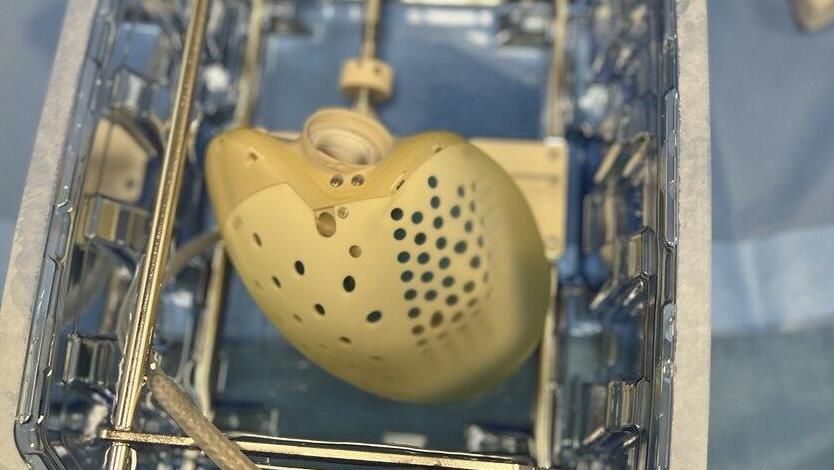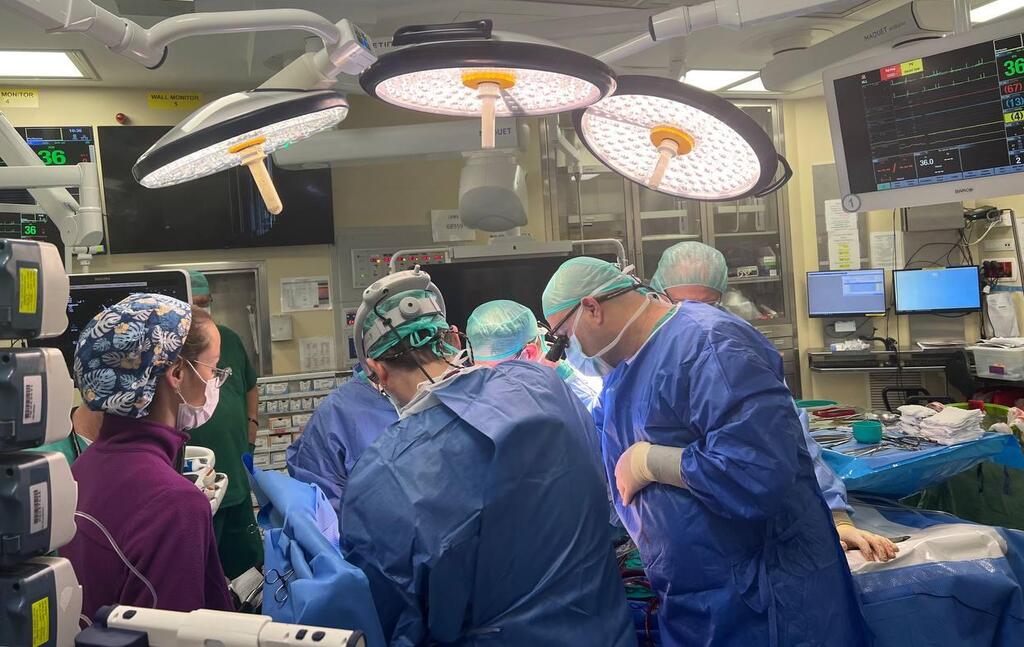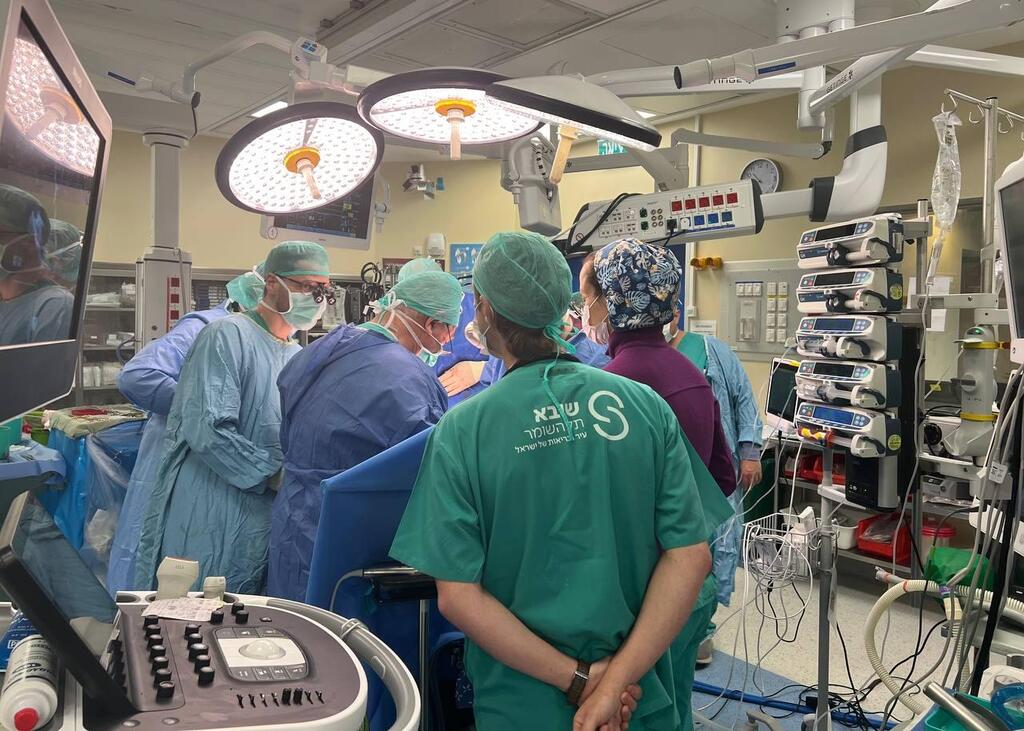In a groundbreaking procedure on Thursday morning, Sheba Medical Center at Tel HaShomer implanted the world’s most advanced artificial heart—Aeson, developed by French medical device company Carmat—into a man in his 50s suffering from severe biventricular heart failure. The Aeson heart completely replaced the patient’s own, marking a historic moment in Israeli medicine.
Advanced Aeson artificial heart manufactured by Carmat in the operating room at Sheba Medical Center
(Video: Or Hadar)
“This is a very special and historic day,” said Professor Avi Morgan, surgical director of Sheba’s Heart and Artificial Heart Transplant Unit, in an interview with Ynet. The atmosphere outside Operating Room 9 at Sheba’s Heart, Chest and Vascular Center was electric, as residents and staff gathered to witness the medical milestone.
“The artificial heart will keep the patient alive and improve his condition, and we hope that within six to 12 months he will receive a donor heart,” Morgan said. He added that the long-term vision is for the Aeson heart to become a viable alternative to transplantation. “With advancing technology, we believe the artificial heart could eventually become an off-the-shelf product—readily available, without the wait,” he said.
5 View gallery
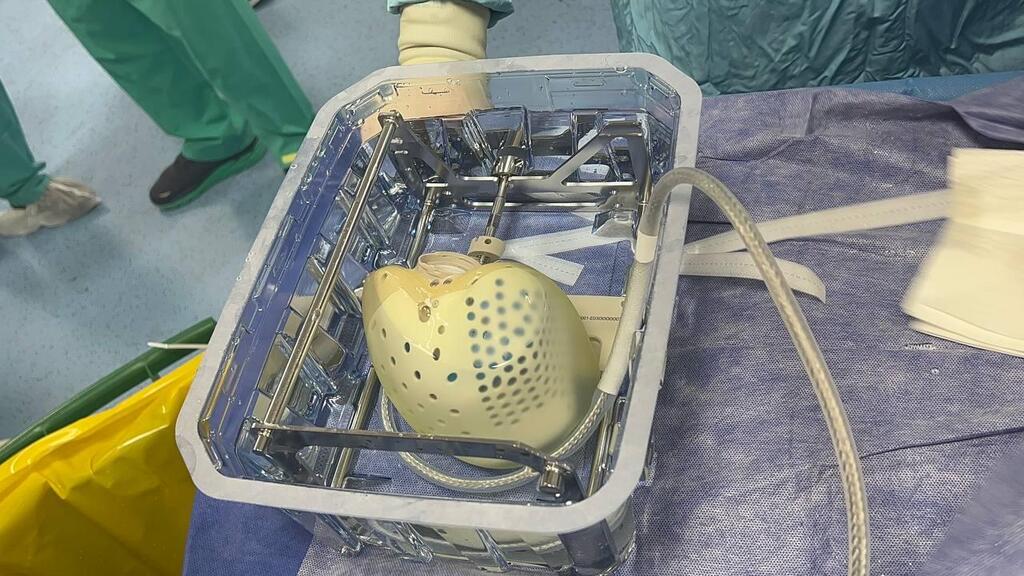

Advanced Aeson artificial heart manufactured by Carmat is ready in the operating room at Sheba Medical Center
(Photo: Sheba Hospital spokesperson)
Heart failure affects 1%–2% of the global population—an estimated 80 million to 160 million people. In Israel, around 180,000 people suffer from the condition. While treatments exist, patients with advanced, unmanageable heart failure are often left with one option: a transplant. Yet the global shortage of donor organs means many do not survive the wait.
The new device was implanted in a patient with biventricular failure, where both the left and right sides of the heart cease to function. “Roughly 10% of heart failure patients face this condition, and for them, transplant is often the only option,” said Morgan. But with too few transplants performed annually in Israel, a growing number of patients are in urgent need of alternatives.
Previously, patients with left-side failure could receive a mechanical pump known as an LVAD, which supports circulation by drawing blood from the left ventricle and pumping it through the aorta. However, for those with right- and left-side failure, the only workaround has been implanting two separate LVADs—an option not originally designed for biventricular use and logistically difficult for patients.
5 View gallery
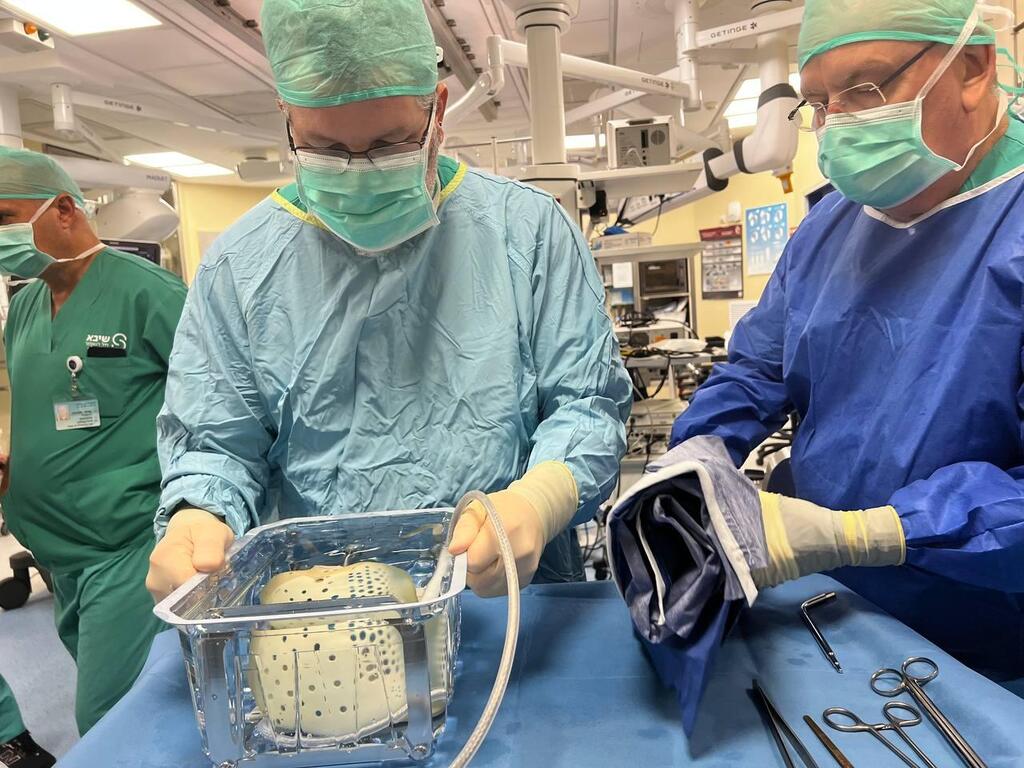

Surgeons prepare the Aeson artificial heart for transplantation
(Photo: Sheba Hospital spokesperson)
The newly implanted Aeson heart, made from a high-performance polymer called PEEK (polyether ether ketone), is engineered to mimic the natural heart’s rhythmic contractions (pulsatility) and adapt in real time to the patient’s physical activity—a process known as autoregulation.
“The artificial heart adjusts to the patient’s activity. If he’s awake or cycling, it knows to pump faster,” explained Yaniv Bakish, clinical support manager at Cemal Medical, the Israeli importer of the technology.
The heart includes four valves and membranes made from biological materials, reducing the risk of blood clots—a common complication in earlier models. Older artificial hearts were bulky, noisy and prone to complications. One previous model was pulled from the market due to high failure rates.
In this procedure, which lasted around six hours, the patient’s heart was removed and replaced with the Aeson device. Initially connected to a heart-lung machine, the patient was gradually weaned off once the new heart was fully operational. The system is externally monitored via a tablet and controlled by a small external power cable, the only component outside the body. It connects to portable batteries or a home power supply at night.
To prepare for the procedure, Sheba’s transplant team trained in Paris with Carmat engineers. Alongside Sheba’s surgical team, experts from Carmat and Cemal Medical were present in the operating room.
So far, over 100 Aeson heart implants have been performed worldwide. According to Morgan, some patients have lived up to two years with the device, which has a notably low complication rate. Currently, the artificial heart is approved as a “bridge to transplant”—a temporary solution until a donor organ becomes available.
Get the Ynetnews app on your smartphone: Google Play: https://bit.ly/4eJ37pE | Apple App Store: https://bit.ly/3ZL7iNv
Beyond addressing organ shortages, Morgan emphasized the Aeson heart’s safety compared to a traditional transplant. “Transplanted hearts carry a risk of rejection. With an artificial heart, that risk doesn’t exist,” he said. Heart transplant recipients also require lifelong immunosuppressive therapy, which weakens the immune system and can lead to serious infections or death.
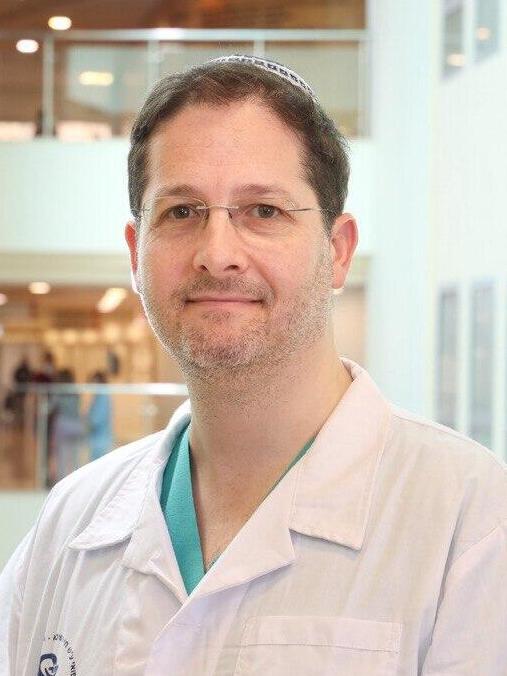 Professor Avi Morgan, surgical director of Sheba’s Heart and Artificial Heart Transplant Unitצילום: דוברות שיבא
Professor Avi Morgan, surgical director of Sheba’s Heart and Artificial Heart Transplant Unitצילום: דוברות שיבא“We are deeply moved,” Morgan concluded. “Thanks to this device, we can save many more patients who would otherwise die waiting for a transplant.”
Professor Yael Peled, medical director of Sheba’s Heart Transplant Unit, added: “This revolutionary technology offers healing and hope to our patients. It gives them the chance to wake up, to breathe, and to live—even when their heart has given up. This artificial heart provides time, a future, and a fighting chance—until a human donor heart can be found.”




